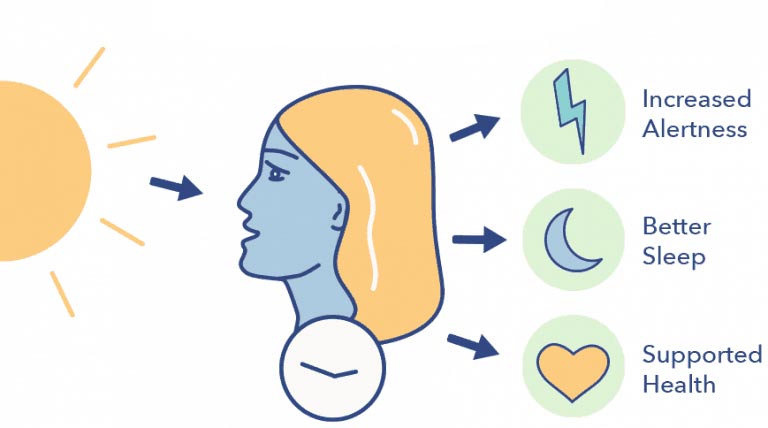All About Circadian Rhythms...
All our bodies have an internal body clock. This is known as the circadian rhythm. It’s the very reason why we fall asleep each night and awake in the mornings and why our bodies will generally feel tired or sleep around the same time each day, when averaged out over a long period. Our body clocks don’t just exert control over our sleeping patterns, they also cause changes in our behaviour, control our levels of alertness, thermoregulation in the body and hormone production. Sleep is so hardwired into our biological processes that when it actually gets dark outside, we naturally will feel a lot more tired and the opposite when it gets lighter each morning.
Children and young people undergo additional changes. When adolescents reach puberty there are changes to their circadian rhythm that generally leads to delayed sleep onset. This has been identified in scientific studies.
Around this time of reaching puberty, the body’s biological clock undergoes these changes.
If compared to a standard clock, we can say that it moves forward in time. It is for this reason that adolescents generally are unable to fall asleep as readily as other age groups or even as early as they themselves used to. When parents struggle to get their children or teens to fall asleep early, they’re fighting against biology. The very same biological process their own bodies would have undergone, if they could only remember. This biological clock, the circadian rhythm, pushes their bodies to remain awake for hours longer. This is all part of a natural process.
The inherent problems with this is that when an adolescent’s body clock influences them to remain awake for longer, this pushes them out of sync with the natural cycle of light and darkness, daylight and night time. Obviously, when you fall asleep later, that’s partly what makes it harder to get out of bed in the mornings. This often leads to exasperation and unpleasant exchanges between parents and teenagers, with parents accusing them of being lazy and staying in bed for too long. This isn’t the case at all.

Ultradian & Infradian...
Although everyone has a slightly different circadian rhythm, generally they’re like a normal clock that follows a cycle of approximately 24 ¼ hours. Those people who are ‘evening typed’, tend to have circadian rhythms that are slightly longer and those who are early bird ‘morning typed’ are slightly shorter than the average.
The term ‘circadian’ was named by biologists in the last century when they were trying to explain what was causing a daily cycle in the body. It comes from the Latin words ‘circa’ meaning ‘around’ and ‘diem’ which means ‘day.’ Around that time, biologists also had other words they applied to the durations of regular body cycles, for example, ‘ultradian’ which was applied to body rhythms lasting under 24 hours and ‘infradian’ for long-term rhythms lasting longer than 24 hours in duration.
Ultradian rhythms are things like your heart beating, respiration and your eyes blinking. These are things that you generally have little conscious control over and they’re all vital functions in the body.
Examples of Infradian rhythms are things that last a lot longer and more prevalent in animals. The most notable of infradian rhythms in humans, affecting women, is the menstrual cycle.

The Daily Cycle...
This daily rhythm provides a link between wake and sleep times and thermoregulation in the body, the temperature control mechanisms. The human body finds it much easier to fall asleep when the body’s temperature falls slightly. The reverse is true also, when the temperature rises, the body will tend to enter a wakeful state.
The circadian rhythm has been around for centuries and affected our ancestors just as much as it affects us today. It’s a perfectly normal biological process.
Fortunately, society has also developed around these same cycles of light and darkness so they also affect not just our sleep patterns, cognitive, emotional and physiological functions but also social and economic events that occur each day. Hence, schools and businesses will, on the whole, only open during the hours of daylight.
This affect on our own biological functions throughout different times of the day leads us to be more able to perform certain functions optimally at different times of the day, from a cognitive and physical point of view. People perform better academically during certain times of the day and not during others. A person’s mood can change according to where they sit on their circadian cycle during the day.


